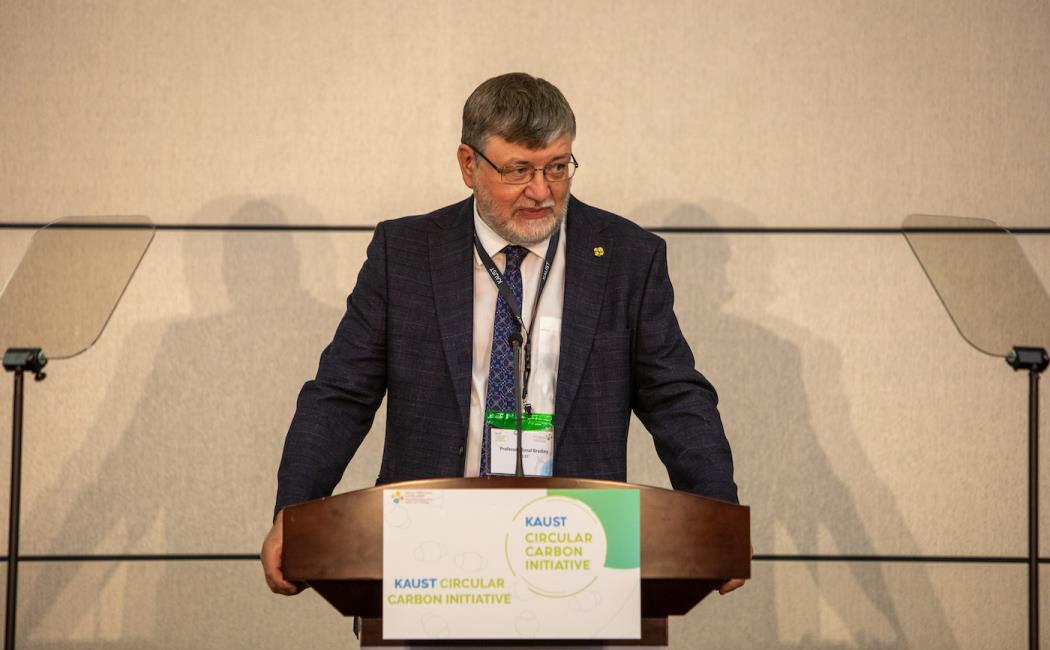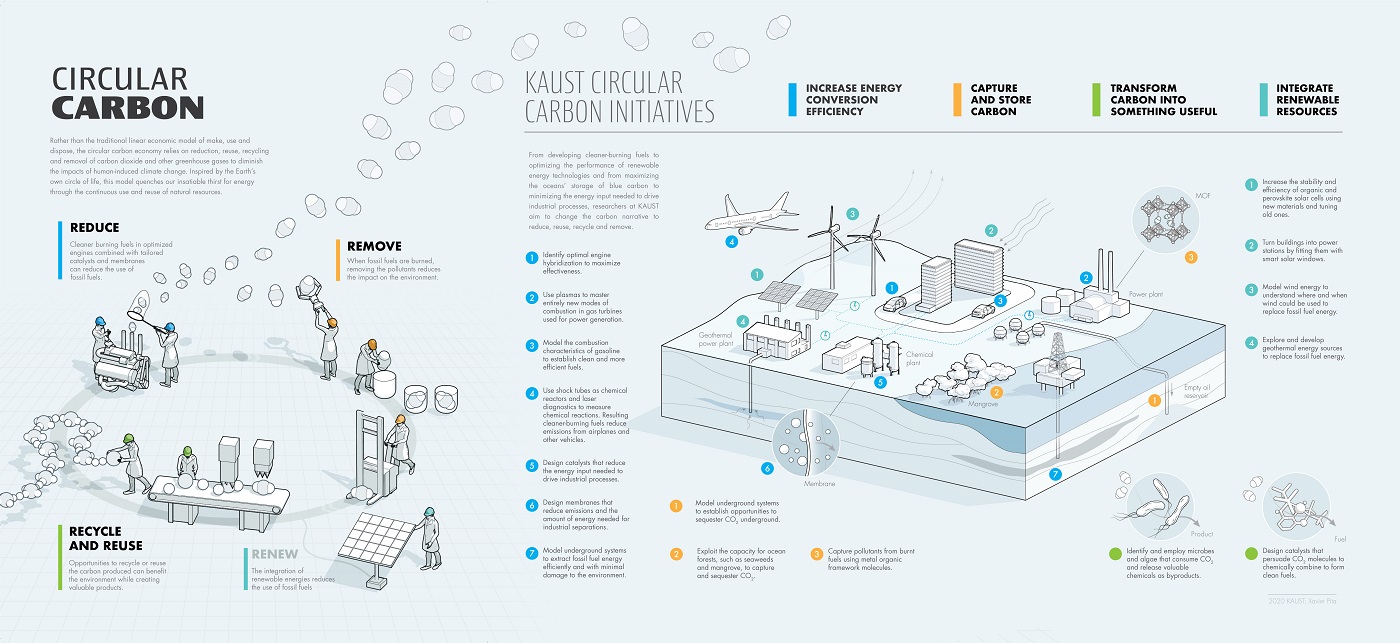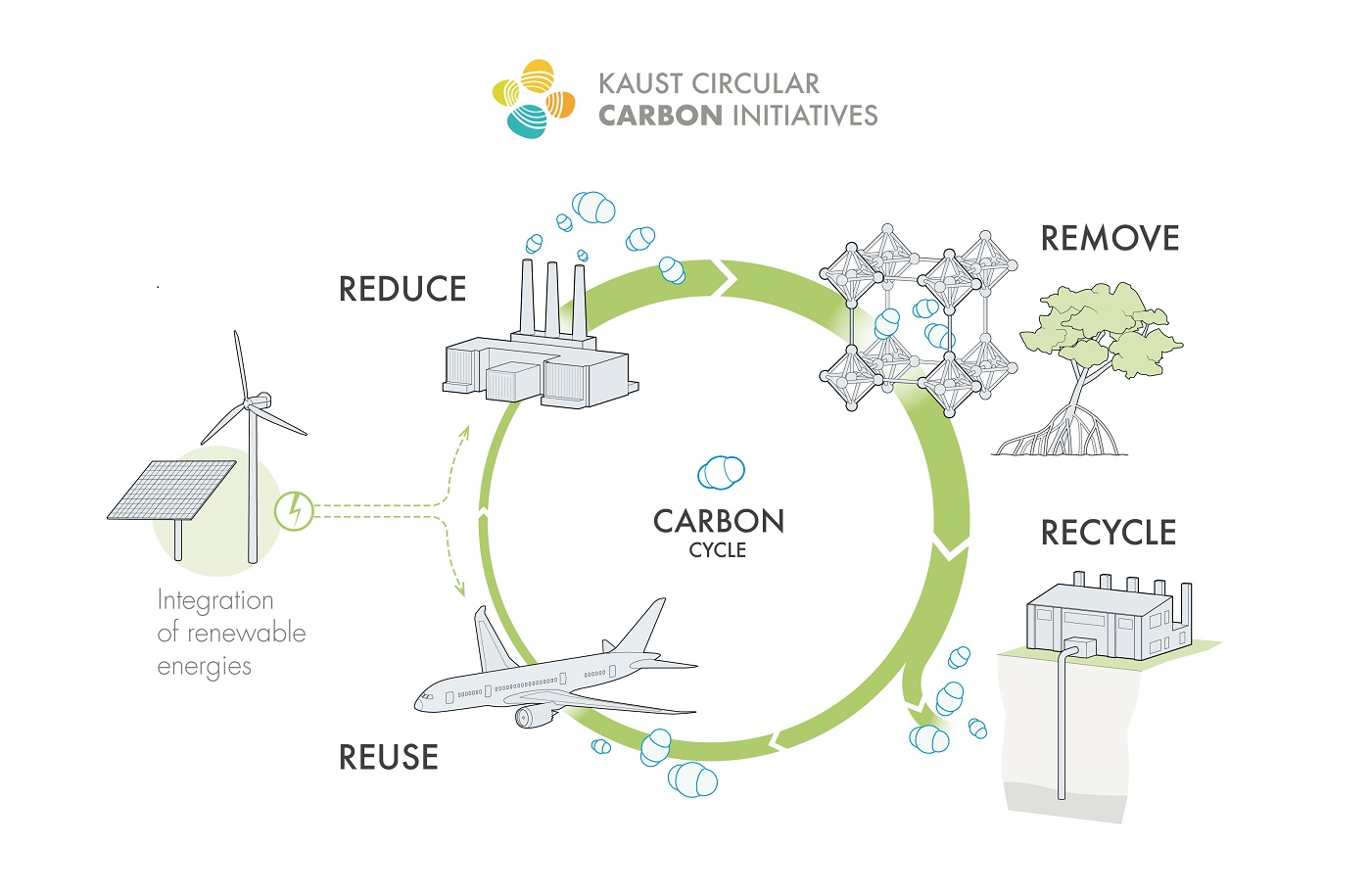
03 December, 2020
"KAUST has always been a pioneer on the pathway to innovation, and today it takes another big step along the road that will benefit the Kingdom of Saudi Arabia," said HRH Prince Abdulaziz bin Salman, Minister of Energy, at the launch of the CCI on December 1.
King Abdullah University of Science and Technology (KAUST) is drawing together the university's pioneering research across the four Rs of carbon management: Reduce, Reuse, Recycle and Remove. The ultimate goal of the new KAUST Circular Carbon Initiative (CCI) is to mobilize KAUST's research and innovation strengths to develop and deploy novel technological solutions to support the Circular Carbon Economy (CCE) Platform.Since its inception in 2009, KAUST has made strategic investments in its Research Centers and Core Lab infrastructure, and the many talented individuals underpinning the university's portfolio of Circular Carbon solutions across the four Rs. These include nature-based solutions to sequestration, and technologies for carbon dioxide (CO2) capture, renewable energy generation and use, and CO2 utilization in novel fuels and materials.
"KAUST is in a strong position to maximize its impact in this arena. With this initiative we will accelerate the implementation of new technologies and contribute to building a more sustainable future for everyone" commented Professor Jorge Gascon, the CCI lead.
"KAUST fosters strong collaborations with academia, industry and government in order to ensure timely utilization of our research outcomes, and we are delighted to answer the Kingdom's call on this critical topic," said Professor Donal Bradley, KAUST's vice president for research.
This goal involves the capture, conversion and storage of atmospheric CO2 to reduce the impacts of climate change. Novel materials and technologies developed at KAUST directly capture CO2 from the air and at the source of emissions.
Blue Carbon approaches reduce CO2 levels while enriching terrestrial and ocean ecosystems. Restoring mangrove and seagrass habitats, recycling CO2 with bacterial systems, and farming algae are among the solutions targeting climate change through mitigation and adaptation.
This goal explores and quantifies the potential of geothermal energy and geological storage, including rock-based chemistry approaches. Geo-based storage solutions can lead to enhanced oil recovery and contribute to sustainable ground energy use.
Novel fuel production redefines CO2 as a valuable material. E-fuel developments include reusing CO2 in combination with green hydrogen, and converting materials such as green and blue ammonia, formic acid, methanol and syngas for carbon free and low carbon mobility.
This thrust focuses on the integration of renewable energy sources and energy efficient technologies coupled with artificial intelligence to improve urban planning and operations. Projects include next generation solar cells, hydrogen production, smart decentralized wastewater treatment, novel air conditioning solutions, and energy saving lights for smarter homes and neighborhoods.


"With the recent launch of the KAUST CCI, we will build an even stronger network of researchers at all career stages to thoroughly test and optimize our science and engineering advances and fully contribute to the ongoing efforts of the Kingdom to implement the CCE National Program," commented Vice President Bradley.
To learn more about the KAUST Circular Carbon Initiative please visit the website.